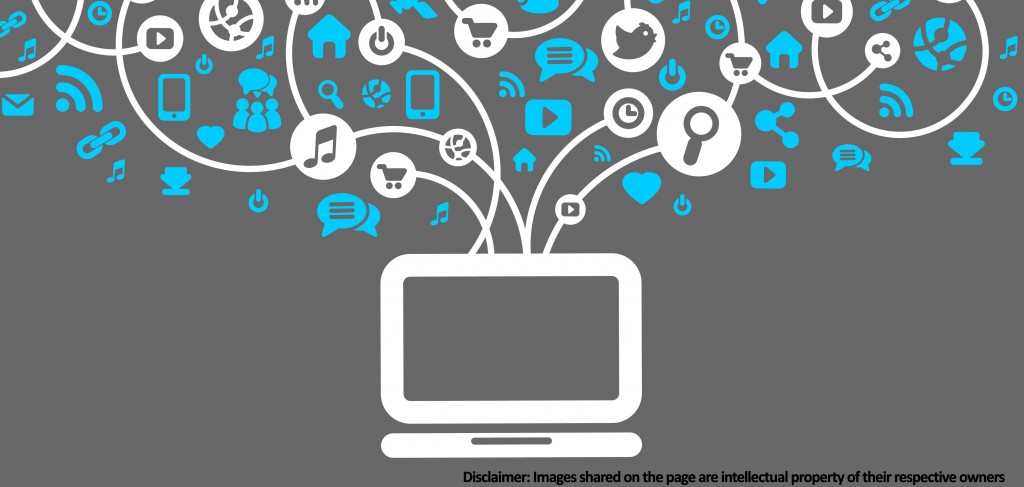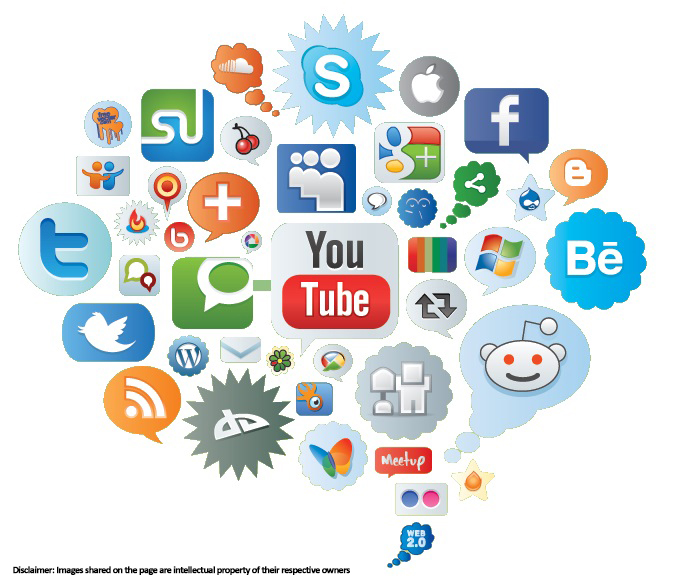Digital Marketing: The New “in” Among Startups
With the advent of the World Wide Web, many magazines and newspapers have folded or attempted to reinvent themselves online. Not only these, major consumer brands have reallocated a significant portion of their advertising budgets to the Web to reach online visitors. Talking about startups, a majority of entrepreneurs find digital marketing much more efficient than traditional marketing. These trends made us wonder what is it about digital media that makes it a favourite among entrepreneurs. We have summed up our findings in the form of 5 major advantages digital marketing has over traditional marketing.
1) Relevant reach at minimum cost
Compared to traditional marketing, digital marketing has the potential to reach exponentially more customers that are relevant to your marketing campaign in a more cost effective manner. While traditional media tends to yield a much higher reach than digital media, it cannot ensure that all people reached are relevant to the marketing campaign. There will always be some portion of the budget generating zero leads simply because the people who saw the ads do not belong to the target audience. On the other hand, when your website content and digital ads appear on search engines to the people looking for the same product category and on targeted posts on social networks like Facebook, Twitter, Pinterest; your message and brand can be seen by many more potential customers, expanding the effectiveness of your total marketing investment.
2) Flexible scheduling
While traditional marketing campaigns require a lot of planning and extensive advance scheduling, marketing campaigns on digital media are flexible in terms of execution. No heavy losses are incurred if the campaigns have to be rescheduled. Add to that the benefit of scheduling posts on social media. Your campaign keeps on running even if you are in a distant country enjoying a holiday.
3) Targeting the audience
With traditional media tools like a mail or television campaign, it’s difficult to target people who are actually interested in your business – meaning your message falls on a lot of deaf ears. On the other hand, digital marketing lets you start up a conversation with the people who actually care about your products/services. For instance, by using the adverts create tool on Facebook, you can reach customers in key locations by country, state/province, city and post code. If you’re an e-commerce business in West India, you can target your adverts at people who live in the West India region. You can also target people based on demographics like age, gender, relationship status, education, workplace and more. For example, an online fashion store would target its adverts at women in the 18-54 age group. Furthermore, Interest targeting lets you define your ideal audience by their interests, hobbies and Pages they like on Facebook. You can also use advanced targeting options, such as targeting women aged between 18 and 34, who live in West India region.
4) Concrete statistics for accurate reports
It’s not easy to know how many people heard your radio spots or read your newspaper ad. But you can find out exactly how many times your digital marketing messages were displayed to customers actively researching a purchase, how many times they were clicked, which web pages they visited after clicking, how long they looked around and more. This online marketing data makes it easy to measure your progress against your business goals and quickly adapt your entire marketing strategy to take advantage of what’s working best. For example, ExactTarget mobile behaviour report helped e-commerce startups revise their marketing plans when it stated that 44% of online shoppers begin by using a search engine. To improve social media performance of brands, it would be of great help to know that if a post is greater than 1,500 words, on average it receives 68.1% more tweets and 22.6% more Facebook likes than a post that is under 1,500 words. Almost 80% companies opted for a mobile optimized site when they came to know that 27% of consumers will leave a site if it is not mobile optimized.
5) A platform for customer engagement and support
Digital marketing sets the stage for customer engagement. Whether it’s lots of phone calls from local customers seeing your online ads, to email opt-ins for a monthly newsletter, comments on a blog, or social media discussions, digital platforms make it easy to communicate with current and prospective customers alike. You can also use social networking websites as a customer support platform. For example, if your customer has a query or a complaint, he might not want to take the time to write to the company using traditional platforms. Instead, he might prefer to switch to another brand. On the other hand, if your startup is active on social networks like Twitter or Facebook, the customer will write to you about the issue in a minute and you can immediately respond to him, thereby maintaining the customer satisfaction as well as the reputation of your startup. You can also use these platforms as a medium for market research. The chances of responses in these media are high compared to the traditional market research techniques like telephonic surveys.
While conducting a research for this blog, we came across a good number of people who believe that traditional media, as we currently know it, will no longer exist in 10 years. While we aren’t at a point where we can really pronounce certain media “dead or alive,” we’re certainly in a state of major fluctuation and we’ll have to continue riding the waves before we see what modern marketing becomes.


